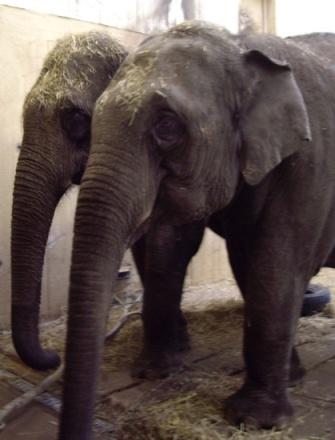Development and application of an olfactory discrimination paradigm for Asian elephants (Elephas maximus)
Final thesis 2011- International Masters Program, Applied Ethology and Animal Biology

Objectives
Anatomical as well as behavioral evidence suggest that Asian elephants strongly rely on their sense of smell in a variety of contexts such as foraging and social communication. However, so far, no behavioral test to systematically assess the olfactory ability in this species has existed. The aim of the present study was therefore to develop and apply an olfactory discrimination paradigm for Asian elephants, which can be employed to further investigate the sense of smell in this species.
The behavioral test was based on a food-rewarded two-alternative instrumental conditioning paradigm. The animals were taught to sample two odor ports and were food-rewarded when they performed an operant response, that is, putting the trunk at a certain position of the experimental set-up upon correctly identifying the rewarded odor. The training method was based on a voluntary participation of the animals and only positive reinforcement was used as a tool to shape the desired behavior.
A second aim of the present study was also to collect first data on the elephant’s olfactory learning speed, discrimination performance and memory and to compare these data to those collected in other species.
Responsible for this page:
Director of undergraduate studies Biology
Last updated:
05/20/11
